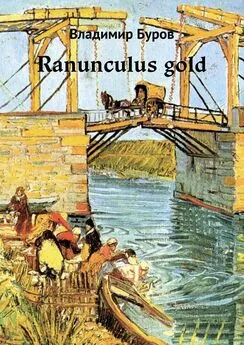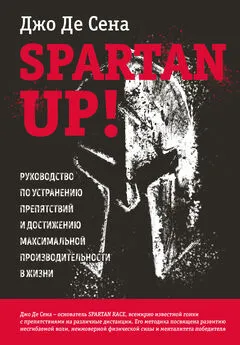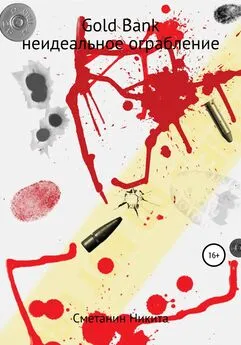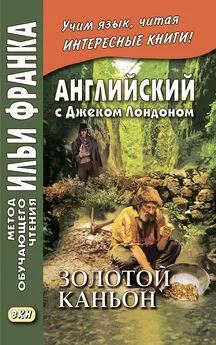Clive Cussler - Spartan Gold
- Название:Spartan Gold
- Автор:
- Жанр:
- Издательство:неизвестно
- Год:неизвестен
- ISBN:нет данных
- Рейтинг:
- Избранное:Добавить в избранное
-
Отзывы:
-
Ваша оценка:
Clive Cussler - Spartan Gold краткое содержание
The debut of a brand-new, action-packed series from the #1 New York Times bestselling master of 'pure entertainment'.
Thousands of years ago, the Persian king Xerxes the Great was said to have raided the Treasury at Delphi, carrying away two solid gold pillars as tribute. In 1800, Napoleon Bonaparte and his army stumble across the pillars in the Pennine Alps. Unable to transport them Napoleon creates a map on the labels of twelve bottles of rare wine. And when Napoleon dies, the bottles disappear.
Treasure hunters Sam and Remi Fargo are exploring the Great Pocomoke Swamp in Delaware when they are shocked to discover a World War II German u-boat. Inside, they find a bottle taken from Napoleon's 'lost cellar.' Fascinated, the Fargos set out to find the rest of the collection. But another connoisseur of sorts has been looking for the bottle they've just found. He is Hadeon Bondaruk - a half- Russian, half-Persian millionaire. He claims to be a descendant of King Xerxes himself.
And he wants his treasure back.
Spartan Gold - читать онлайн бесплатно полную версию (весь текст целиком)
Интервал:
Закладка:
Remi tilted her head at her husband. “That’s beautiful, Sam.”
“I have my moments. Selma, Napoleon’s remains . . . weren’t they moved from Saint Helena?”
“They were. Interesting story itself, really. In 1830 the Bourbons, who retook the throne after Napoleon’s defeat at Waterloo, were themselves overthrown by the Orléans dynasty. They were a little more nostalgic over Napoleon, so they petitioned the British for permission to bring him home. After seven years of wrangling, the Brits agreed and the remains were fetched from Saint Helena and returned to Paris. His official grave is under the dome of Les Invalides.
“Laurent’s grave is still on Elba—it’s a crypt, actually. The trick is, how do you handle it? I assume you’d prefer to avoid breaking in and playing tomb raiders.”
“Ideally,” Sam said.
“Then you’ve got to get permission. And as luck would have it, Laurent has a granddaughter, five or six times removed, living in Monaco.”
“Ah, Monaco in the spring,” Sam murmured. “How can we say no?”
“We can’t,” Remi chimed in.
CHAPTER 22
PRINCIPALITY OF MONACO, FRENCH RIVIERA
Sam pulled their rented olive green Porsche Cayenne SUV down the lilac-lined driveway and stopped before a four-story, white stucco terra-cotta-roofed villa overlooking the waters off Point de la Veille.
As it turned out, Arnaud Laurent’s distant granddaughter, Yvette Fournier-Desmarais, was embarrassingly wealthy, having inherited her late husband’s interests in a number of Monaco businesses, including a half dozen beach resorts and motor sporting clubs. According to the gossip rags she was, at age fifty-five, Monaco’s most eligible bachelorette and since her husband’s death fifteen years earlier had been courted by an impressive collection of Europe’s jet set, from princes to celebrities to captains of industry. She’d dated all of them, but none for longer than four months, and was rumored to have turned down dozens of marriage proposals. She lived alone in her villa with a modest staff and a Scottish deerhound named Henri.
Surprisingly, Sam and Remi had had little trouble arranging a meeting, first presenting their credentials and request to Ms. Fournier-Desmarais’s lawyer in Nice, who in turn agreed to contact his client. She’d e-mailed them directly within a day and insisted they come immediately.
They climbed out of the Porsche and walked into the front courtyard and along a path between a pair of bubbling fountains to the front door, twin slabs of mahogany and stained glass that rose four feet above their heads. Sam pressed the button on the wall and a soft chime sounded from within.
“ ‘A Marcia de Muneghu,’ ” Remi said.
“What?”
“The doorbell chime—it’s ‘A Marcia de Muneghu.’ The March of Monaco. It’s the national anthem here.”
Sam smiled. “Read some guidebooks on the plane, did we?”
“When in Rome . . .”
The door opened, revealing a rail-thin middle-aged man in matching navy blue slacks and polo shirt. “Mr. and Mrs. Fargo, yes?” His accent was British. He didn’t wait for a reply, but merely stepped aside and tipped his chin.
They stepped into the foyer, which was simply but tastefully done: light gray Egyptian slate on the floor and a soft Mediterranean blue plaster on the walls. A silver-framed mirror sat above a nineteenth-century English Sheraton painted demi-lune console table.
“My name is Langdon,” the man said, shutting the door. “The mistress is on the veranda. This way, please.”
They followed him down the hall, past the formal rooms to the private half of the house, then out a pair of French doors onto a mul titiered deck made from polished burled walnut.
“You’ll find her there,” Langdon said, gesturing up a set of stairs that wound along the villa’s outer wall. “If you’ll excuse me . . .” Langdon turned and disappeared back through the French doors.
“My God, look at that view,” Remi said, walking to the railing. Sam joined her. Below an embankment of rock outcrops, palm trees, and flowering tropical shrubs lay the breadth of the Mediterranean, a carpet of indigo stretching beneath a cloudless sky.
A female voice called, “It’s a sight I never tire of either.”
They turned. A woman in a plain white sundress and sunflower yellow broad-brimmed hat stood at the top of the steps. This was, they assumed, Yvette Fournier-Desmarais, but neither Sam nor Remi would have guessed her to be older than forty. Beneath the hat her face was tanned, but not baked, with barely perceptible laugh lines around a pair of hazel eyes.
“Sam and Remi, yes?” she asked, walking down the stairs, hand outstretched. “I’m Yvette. Thank you for coming.” Her English was excellent, with the slightest trace of a French accent.
They shook her hand in turn, then followed her up the stairs and around the back to an open-air sunroom draped in gauze curtains and appointed in teak chairs and chaise lounges. A large, sleek brown and black dog sitting in the shade beside one of the chairs started to rise upon seeing Sam and Remi, but sat back down again at his mistress’s soft, “Sit, Henri.” Once they were all settled, she said, “I’m not what you expected, am I?”
Sam replied, “To be honest, no, Mrs.—”
“Yvette.”
“Yvette. To be honest, no, you’re not at all.”
She laughed, her white teeth flashing in the sun. “And you, Remi, you were expecting someone more matronly perhaps, a French bejeweled snob with a poodle under one arm and a champagne flute in the other?”
“I’m sorry, but yes, I was.”
“Oh, goodness, don’t apologize. The woman I just described is more the rule than the exception here. The truth is, I was born in Chicago. Went to grade school there for a few years before my parents moved us back to Nice. They were simple people, my mother and father—quite wealthy, but with simple tastes. Without them, I might have ended up the stereotype you were expecting.”
Langdon appeared up the stairs and placed a tray containing a carafe of iced tea and frosted glasses on the table between them. “Thank you, Langdon.”
“Yes, ma’am.” He turned to go.
“Have fun tonight, Langdon. And good luck.”
“Yes, ma’am, thank you.”
Once he was out of earshot, Yvette leaned forward and whispered, “Langdon’s been dating a widow for a year now. He’s going to ask her to marry him. Langdon is one of the best Formula One drivers in Monaco, you know.”
“Really,” Sam replied.
“Oh, yes. Very famous.”
“If you don’t mind me asking, why is he . . .”
“Working for me?” Sam nodded, and she said, “We’ve been together for thirty years, since I started dating my late husband. I pay him well and we like each other. He’s not quite a butler, really, but more of a . . . what is the word . . . in American football he would be called a—”
“Free safety?”
“Yes, that’s it. He wears many hats for me. Langdon was a commando before he retired—British Special Air Service. Very tough fellow. Anyway, we’ll hold the wedding and reception here—providing she says yes, of course. You two should come, you really should. You don’t mind iced tea, do you?” she asked, pouring for them. “Not really the beverage of the wealthy, but I love it.”
Sam and Remi each accepted a glass from her.
“So: Arnaud Laurent . . . My great-great-great-something grandfather. You’re interested in him, yes?”
“Very much,” Remi said. “First, may I ask why you agreed to see us?”
“I’ve read about you, about your adventures. And your charitable work. I admire the way you live your lives. You know, at the risk of being crass, there are families here that are frighteningly rich, so much so that they couldn’t spend all their money if they tried and yet they give none of it away. As far as I’m concerned, the tighter you cling to money, the tighter its hold on you. Don’t you agree?”
“We do,” Sam replied.
“So that’s why I agreed to see you: I knew I would like you, and I was right, and I was also intrigued about how Arnaud fit into whatever quest you’re on—you’re on a quest, yes, an adventure?”
“More or less.”
“Marvelous. Perhaps I can tag along sometime? Well, I apologize, I’m running at the mouth. Do you mind sharing with me the nature of your work?”
Remi and Sam exchanged glances, each reading the other’s expression. Their instincts, which were more often right than wrong, told them they could trust Yvette Fournier-Desmarais.
Sam said, “We stumbled across a bottle of wine, very rare, that might be connected to Arnaud—”
“Napoleon’s Lost Cellar, yes?”
“Well, yes. Maybe.”
“That’s fantastic!” Yvette said, laughing. “Wonderful. If anyone should find the cellar, it should be you two! Of course I’ll help in any way I can. You’ll do the right thing, I know. Back to Arnaud: In all fairness I should tell you you’re not the first ones to ask about him. A man called my attorney a few months ago—”
“Did you get his name?” Sam asked.
“My attorney has it, but I don’t remember. Something Russian, I think. Anyway, the man was quite insistent, even a little rude, so I chose not to see him. Sam, Remi, I can see from your faces this means something to you. Do you know who I’m talking about?”
“We might,” Sam replied. “We’ve run into our own ill-mannered Russian and, given how far he’s been willing to go, we’re probably talking about the same person.”
“You haven’t had any unwelcome company?” Remi asked her.
“No, no. And I’m not worried. Between Langdon and his three cohorts—who are lurking around here somewhere—and the alarm system and Henri here, I feel completely safe. Not to mention I’m a fantastic shot with a pistol.”
“Something you and Remi have in common,” Sam said.
“Is that true, Remi, you’re a marksman?”
“I wouldn’t go that far—”
Yvette leaned forward and tapped Remi’s knee. “When you can stay longer we’ll go shooting, just us girls. There’s a wonderful beach club in Menton not far from here; they have an indoor range. So, back to our Russian villain: He was very interested in Arnaud’s crypt on Elba. I assume that’s why you came to see me?”
“Yes,” Remi said.
“Well, we told him nothing. I suspected he’d already been there and came away disappointed, which was why he was so badly behaved.”
“What do you mean?”
Yvette leaned forward and lowered her voice to a conspiratorial whisper: “A few years ago there was some vandalism on Elba, just teenage children running amok, but it got me thinking. Given who Arnaud is, and how . . . zealous some Napoleonophiles can be, we decided to move Arnaud’s sarcophagus.”
“To where?” Sam asked. “Off the island?”
“Oh, no, it’s still there. Arnaud wouldn’t have approved of being taken off Elba. No, we found another graveyard with an empty crypt and moved him there. He’s safe and sound. I assume you’d like my permission to peek inside his sarcophagus? That’s why you’ve come, yes?”
Sam smiled. “I’m glad you said it. I wasn’t sure of the etiquette when asking a relative if they’d mind us poking around their ancestor’s remains.”
Yvette waved her hand dismissively. “Not to worry. You’ll be respectful, I’m certain. Anything you take, you’ll return, yes?”
“Of course,” Remi replied. “Though none of it might be necessary. We’ve been told Arnaud was buried with some personal effects. Do you happen to know what they were?”
Читать дальшеИнтервал:
Закладка:


![Джо Сена+ - Spartan up! Руководство по устранению препятствий и достижению максимальной производительности в жизни [litres]](/books/1059232/dzho-sena-spartan-up-rukovodstvo-po-ustraneniyu-pr.webp)







